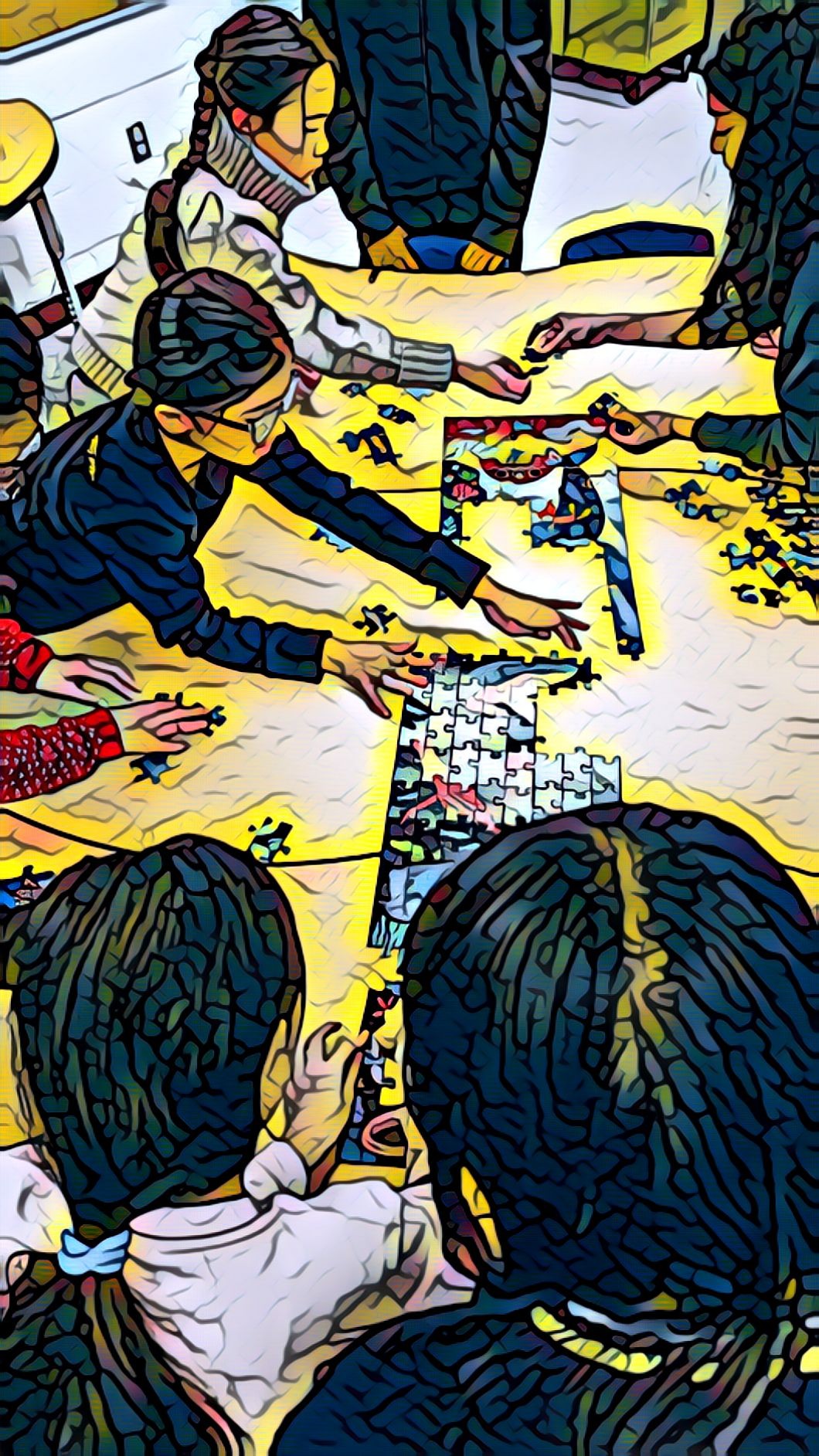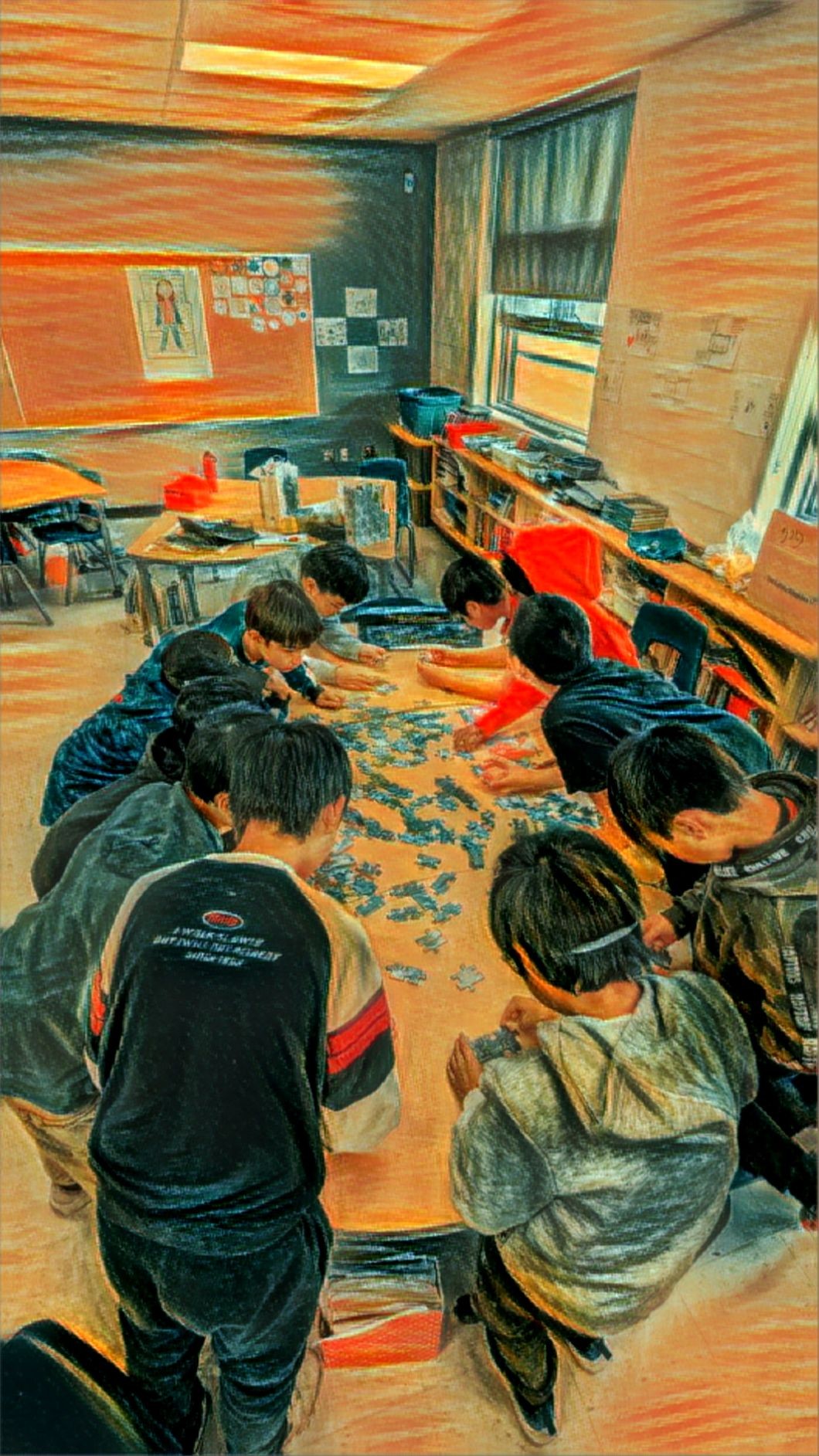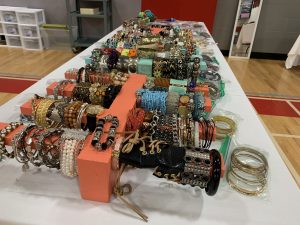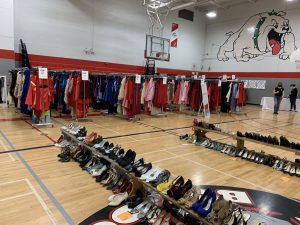Imagine a last week of school before the winter break that was so crammed with activities that when the bell sounded on the last day that there was applause and a collective exhale?
Imagine a last week of school that collected, organized, logged on a spreadsheet, and delivered over 600 non-perishable items to 2 local food banks?
Our class split into 3 groups (logistics, sales, and marketing). Each group developed and defined their roles in the project which included creating marketing materials such as posters to place around the school and daily announcements for the duration of the campaign. Our sales team was in charge of creating grade level appropriate presentations for grades K to 2, 3 to 5 and 6 to 8. Once the campaign started our logistics team collected the food from classes and drop off points, sorted them by type, checked for best before dates, and logged the items on to spreadsheets.
Imagine taking time for a kindergarten concert, a dance, and some class social activities? This included sending notes and games to our Sweet Secret Santa class in the school, and then joining them for a surprise shared read aloud. It also gave us a chance to cheer for their singing performances too.*
Imagine getting caught up on past work so that there was nothing to work on over the holiday? Perhaps it is a personal preference that has developed over the years, but I like to clean the homework house before extended breaks. It is not my goal to burden my scholars with busy work. Instead, I choose to encourage them to be helpful at home. I shared that washing dishes, doing laundry, using a vacuum, or tidying up will be good habits to start forming now in advance of those post secondary days away to come.
Imagine having to do, not one, but 2 assessments on the last day before the break? That’s on me. I hate deferring good assessment opportunities for which all the prep has been put in. Plus we can all return to new learning once the break is over.
Imagine not watching a single movie other than a few Bugs Bunny cartoons? If you want your kids to see movies in my class, then you are going to be disappointed. TED talks, short docs, creative animations or music videos (OK Go), and classic cartoon shorts are what you’ll find queued up.
Imagine a team puzzle solving challenge that asked students to be leaders and encouragers when under pressure? I thought that this might be fun instead of playing a Kahoot or Blooket (both of which I really enjoy) for a change.
I found two 200 piece puzzles at the Dollar Store. The neat thing was that the puzzles were 150 cm x 30 cm in size. The large pieces made it easy for the 10 plus students to see who gathered around the large table to put it all together as quickly as they could. On the line, bragging rights and a bag of cherry blasters (gelatin free). My only advice was that good teams/leaders work hard at encouraging one another, not yell at each other.
It was really interesting to watch the two teams (boys vs girls this time) work together. I witnessed two totally different, yet effective collaborative approaches. In my mind this activity was only going to take a half an hour to complete so I set it up before lunch thinking it would all be over just in time.
Nope. 15 minutes into their lunch time, students were still buzzing around their puzzle tables working on their team task before one team prevailed. Victorious and magnanimous they shared their prize.


Imagine tidying up the class so that it sparkles for our return? Sweeping (me), tech , art supplies, books, math manipulatives all organized, book boxes and lockers cleaned out, and chairs stacked in manageable piles (students). This ongoing chance to model responsible class stewardship never gets old. I always love the zen moments that come from sweeping.
Imagine saying happy holidays, Merry Christmas, and peace on earth?
That’s what happened.
p.s.
Imagine being home for two weeks? For some these weeks will be the toughest times where they may not feel as connected or seen as they might be at school. My hope is that all students and staff will come back rested and ready for the next 6 months at school. Wishing you all the best for a healthy 2024.
* It’s been a while since I have seen a JK/SK concert which was so entertaining and out of the traditional Rudolph and Frosty box. Based on student and adult audience reactions, I was not alone in this opinion.


